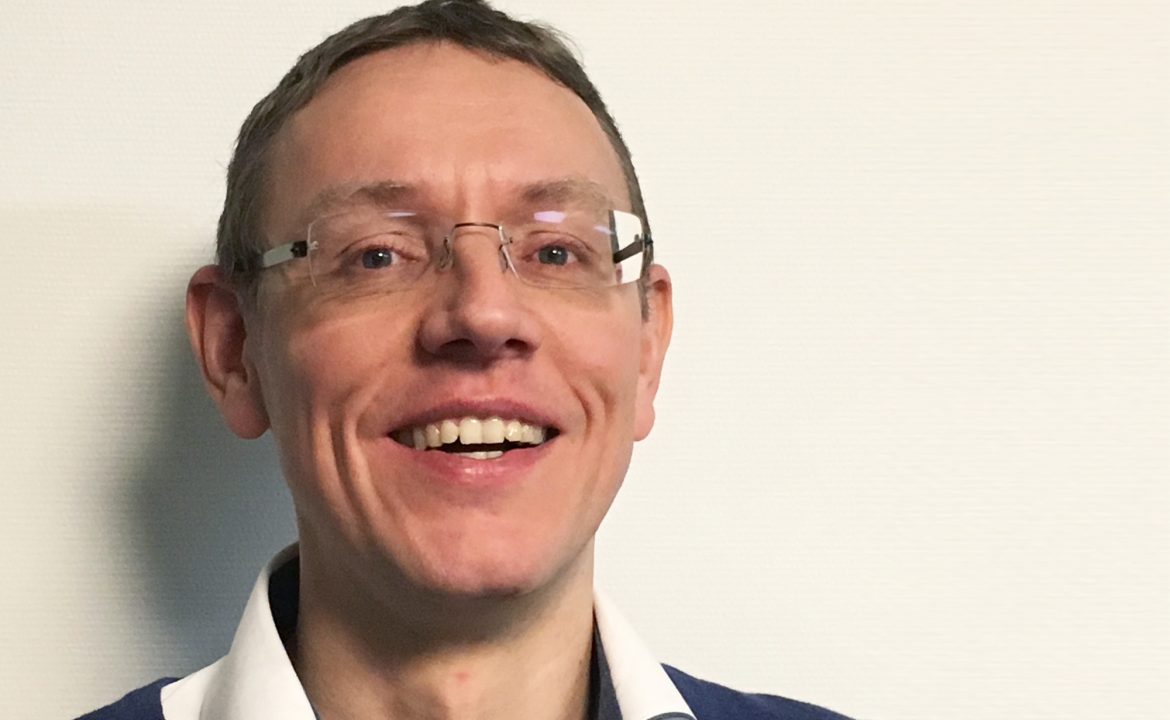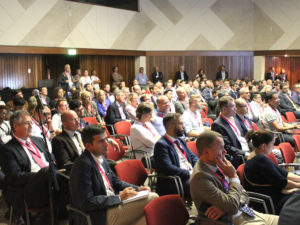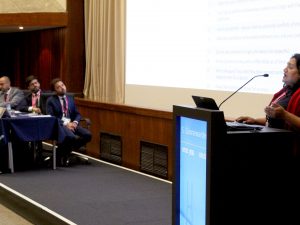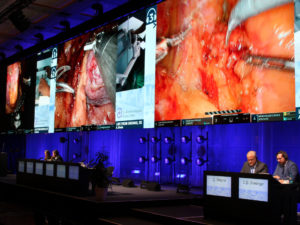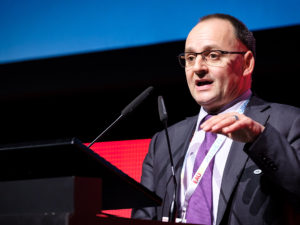The EAU Robotic Urology Section meeting is set to offer delegates the latest and best in this fast-moving field. With a strong emphasis on live surgery and with no less than three other meetings held concurrently, ERUS17 is not to be missed for the technology-minded urologist.
ERUS17 starts on September 25th with a special half-day programme for residents and young urologists, the Junior ERUS–Young Academic Urologists (YAU) meeting. This is followed by an afternoon of courses offered by the European School of Urology.
Similarly, the ERUS-EAUN Robotic Urology Nursing Meeting has a full-day meeting designed for nurses who are involved in robotic surgery. The YAU will also have its own (closed) meeting on the 25th. The regular ERUS scientific programme begins on the 26th.
We spoke to Dr. Geert De Naeyer (Aalst, BE), who is a member of the ERUS17 Local Organising Committee and in charge of this year’s Junior ERUS-YAU meeting.
Cutting-edge Live Surgery
“As with previous editions of ERUS, our goal is to cover the most common robotic operations,” De Naeyer explains. “This year, the surgery is taking place in the OLV Hospital in Aalst, where we have three robotic systems at our disposal (2 Si and 1 Xi). It’s the only centre with three systems in Belgium. We will schedule to have all three operating rooms running simultaneously. This allows us to have 16 cases instead of the usual 12, and the moderators will be able select the most important parts of every operation.”
“From feedback we learned that delegates want to see more complex surgery, so this year at least two cystectomies are scheduled, as well as a salvage lymphadenectomy. More rare indications will be shown if cases are available: adrenalectomy, a paediatric case (a live first for ERUS!), robotic adenomectomy, and a vasovasostomy.”
The slogan for ERUS17, which is reflected in the scientific programme is “Experts of today vs. the rising stars of tomorrow.” De Naeyer explains this duality in the live surgery: “Compared to previous editions, this year we didn’t necessarily want to feature the same surgeons for the whole live surgery programme. So we will be starting with the famous, established ‘star surgeons’ like Vip Patel, Alex Mottrie, and Peter Wiklund, but we will also incorporate new, upcoming surgeons into the programme.”
Other lectures will cover current topics like PSMA, mpMRI, and emerging new technologies. Delegates can also look forward to a comprehensive updates on paediatric robotic surgery, and cost-effectiveness, an important topic for robotic urologists and robot users in general.
De Naeyer: “This year we will have a special new session: ‘How it all started: The 10th Anniversary of the ERUS Society’ which will look back over the past 10 years. In effect, this is the tenth anniversary meeting since ERUS became a society and then an EAU Section, and it’s also a return to Belgium for us. Bruges is a former European Capital of Culture and we hope that delegates will take the time to visit some of its highlights.”
Young Urologists
ERUS17 features the 7th Edition of the Junior ERUS Meeting, combined this year with the Young Academic Urologists. Young urologists and residents have special wishes and needs for their meeting, and Dr. De Naeyer knows what it takes to design a specialised programme:
“We are offering a practical programme, providing many tips and tricks for the starting robotic surgeon. Our goal has always been to target the novice robotic surgeon, in sessions presented by other young urologist (age 40 or younger). Specific attention is given to difficult steps, and the starting up of a robotic surgical unit, which is not covered in the regular programme.”
“Junior ERUS has been very well received in the past years. Last year in Milan we managed to offer live surgery for the first time. This year this is also certainly a possibility, perhaps as ‘semi-live’, and maybe even streamed over internet for those who want to tune in from their homes or offices.”
“Over the past couple of years, Junior ERUS has been featuring more scientific content as well: we’ve found that a critical literature update is much appreciated.”
Of all the EAU’s Section Meetings, ERUS is unique in having its own “Junior” programme. Dr. De Naeyer points to the potential of robotic surgery as being attractive for younger urologists. “It’s become clear that robotic surgery is here to stay. We are attracting young surgeons because they are the future of our specialty Junior ERUS-YAU wants to be there for them. Furthermore, robotic surgery is teamwork, usually between a senior surgeon and a junior table assistant. There are different learning curves for both parties.”

